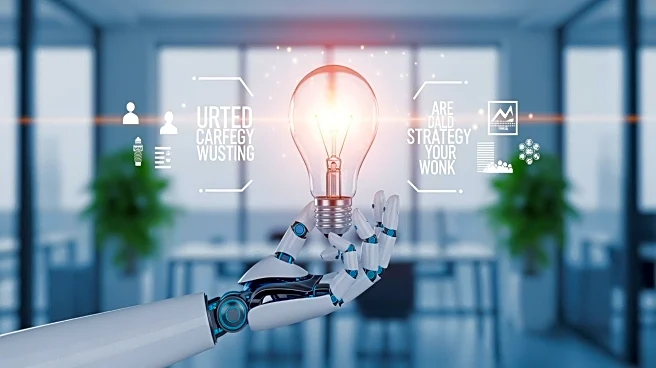What's Happening?
Teuila Hanson, Chief People Officer of LinkedIn, is addressing the challenges and opportunities presented by rapid technological advancements in the workplace. At LinkedIn's Talent Connect conference,
Hanson emphasized the importance of strategic focus on employee needs amidst the integration of AI and automation in HR functions. She highlighted the necessity of maintaining data quality and fostering collaboration between HR and IT teams to effectively manage change. Hanson draws on past experiences, such as the Great Recession and the COVID-19 pandemic, to guide her leadership approach during these transformative times.
Why It's Important?
The integration of AI and automation in HR processes is reshaping the workforce landscape, impacting how companies recruit, train, and retain talent. LinkedIn's approach, as outlined by Hanson, underscores the importance of balancing technological advancements with human-centric strategies. This shift has significant implications for the HR industry, as it requires a reevaluation of traditional talent acquisition and management practices. Companies that successfully navigate this transition stand to gain a competitive edge by enhancing employee engagement and productivity, while those that fail to adapt may struggle to attract and retain top talent.
What's Next?
LinkedIn plans to continue refining its AI transformation plan, focusing on ensuring data integrity and exploring small-scale AI applications before implementing broader changes. The company aims to enhance employee self-service capabilities and improve the onboarding process. As LinkedIn and other organizations adapt to these changes, the role of HR will likely evolve, with a greater emphasis on strategic partnerships with IT and a focus on maintaining employee trust and engagement during periods of uncertainty.
Beyond the Headlines
The ethical implications of AI in HR, such as data privacy and the potential for bias, are critical considerations as companies integrate these technologies. LinkedIn's emphasis on data quality and transparency reflects a broader industry trend towards responsible AI use. Additionally, the cultural shift towards hybrid work models and the need for continuous learning and adaptation among employees highlight the evolving nature of work in the digital age.









